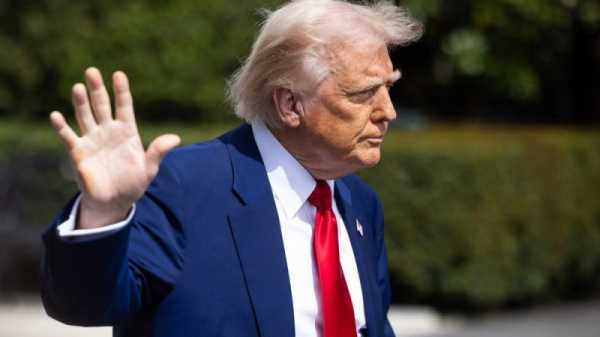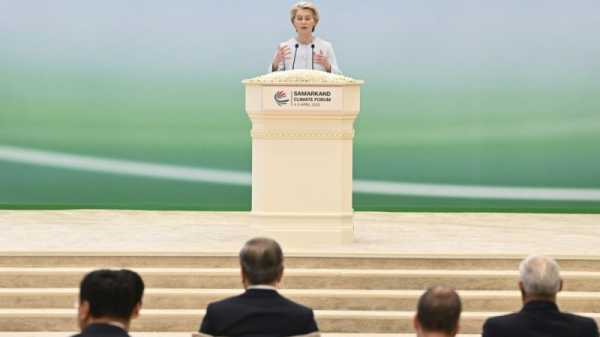
UK foreign secretary Liz Truss outlined plans for a new law to override parts of the Northern Ireland protocol on Tuesday (17 May), insisting that the plans would be legal under international law.
However, European Commission Vice President Maroš Šefčovič quickly responded that “the EU will need to respond with all measures at its disposal” should the UK press ahead, hinting at potential sanctions.
Truss told the House of Commons on Tuesday that the law was needed to protect the Good Friday peace agreement which she described as “under strain” because of the protocol.
“We are clear that there is a necessity to act. Proceeding with the bill is consistent with our commitments under international law,” she told lawmakers, adding that “this is not about scrapping the protocol…part of which is working…but fixing the parts that aren’t.”
“The NI protocol does not have the support necessary in one part of the community,” she added.
Although the bill will not be tabled to the Westminster parliament for several weeks, Truss said that it would ensure that goods moving and staying in the UK are “freed of unnecessary bureaucracy” if they are not destined for the EU and give businesses the chance to choose between meeting UK or EU standards in a new regulatory regime based on the UK’s demand for regulatory equivalence with EU standards.
She added that goods going to the EU would comply fully with single market requirements.
After a year of talks between EU and UK officials aimed at easing the implementation of the protocol, Truss complained that the Commission proposals were “not able to address the UK’s fundamental concerns”.
However, she insisted that the UK wanted to continue talks with the Commission and that “our preference is to reach a negotiated settlement with the EU, but the urgency of the current situation means we can’t afford to delay any longer.”
The protocol was negotiated and agreed upon by Boris Johnson’s government in 2020 as part of the UK’s Withdrawal Agreement with the EU. However, it has always been controversial. Johnson promised that Northern Ireland businesses would not face any additional paperwork when trading with the rest of the UK, a claim contradicted by the terms of the protocol, which introduced customs checks on goods travelling from Britain to Northern Ireland.
The status of the protocol has become particularly urgent following the Northern Ireland assembly elections earlier this month. Though the Irish nationalist Sinn Féin topped the polls, the second-placed party – the Democratic Unionist party – whose support is required for a new devolved government to take office, said that it would block a new administration until its concerns about the protocol have been resolved.
Opposition lawmakers accused the UK government of breaking its word by trying to unpick a treaty it had enthusiastically supported as part of its successful election campaign in December 2019.
Labour’s foreign affairs spokesperson Stephen Doughty warned that the new bill would prompt “a damaging downward spiral to EU relations.”
For his part, Simon Hoare, the Conservative chair of the Northern Ireland affairs committee, remarked that it was “extraordinary that a Conservative government needs reminding” about the need to uphold the rule of law.
The proposal was quickly denounced by the European Commission.
“After long and intensive discussions between the EU and the UK, the Protocol on Ireland/Northern Ireland is the solution found to reconcile the challenges created by Brexit, and by the type of Brexit chosen by the UK government,” said Commission Vice-President Maroš Šefčovič in a press statement
“The European Union wishes to have a positive and stable relationship with the United Kingdom. This relationship must be based on the full respect of the legally binding commitments that the two sides have made to one another,” he added.
EU officials have warned that the Trade and Cooperation Agreement with the UK could be put in jeopardy by the UK law.
[Edited by Nathalie Weatherald]
Source: euractiv.com



